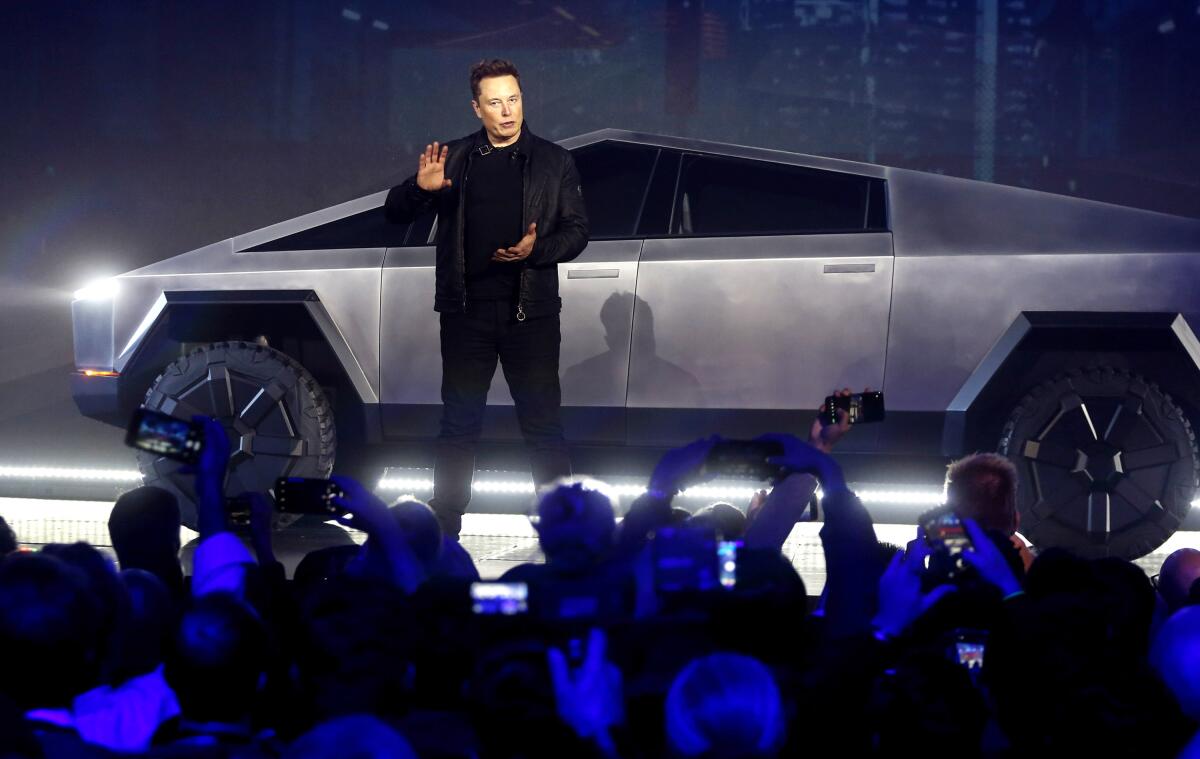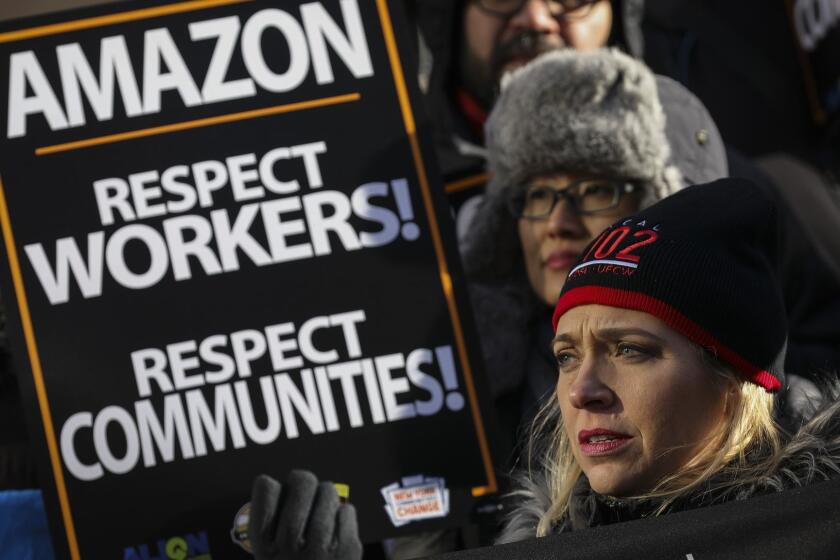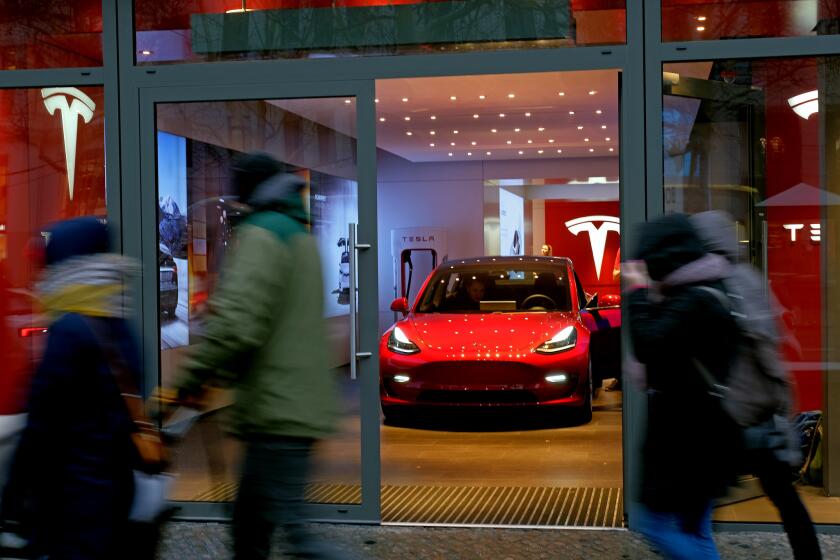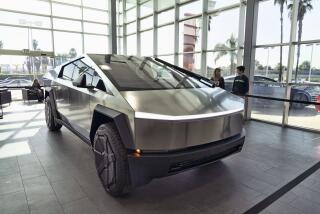Tesla on the hunt for Cybertruck plant location in central U.S.

Elon Musk announced Tesla Inc. is scouting locations to build its in-development Cybertruck in the U.S., likely triggering a state-by-state competition similar to one he set off six years ago.
Tesla will add a factory to produce both the electric pickup and the Model Y crossover for customers on the East Coast, the chief executive tweeted Tuesday. He didn’t elaborate on which states Tesla is considering beyond saying it will be somewhere in the central U.S.
By publicizing Tesla’s plans to construct a factory for the truck, slated for production late next year, Musk, 48, is repeating a strategy used in 2014 to score a $1.3-billion incentive package from Nevada. The state lured the company’s massive battery factory there after Musk held a bake-off in which Arizona, California, New Mexico and Texas were the finalists that came up short.
Jeff Bezos’ frustration with meager government largess prompted HQ2 executives to adopt an unapologetic appeal for tax breaks.
Musk unveiled the Cybertruck in November and pitched it as a radically different alternative to the highly lucrative pickups produced by Ford Motor Co., General Motors Co. and Fiat Chrysler Automobiles. A botched demo in which Tesla’s design chief cracked supposedly shatter-proof glass generated enormous buzz and prompted the company to sell T-shirts featuring the broken windows.
States with right-to-work laws that prohibit unions from requiring prospective hires to join their membership are likely to be contenders for Tesla’s facility, said John Boyd, principal of a manufacturing site-selection firm based in Princeton, N.J.
“I’d put Tennessee, Indiana, Kentucky, Texas and Michigan on the list,” Boyd said. “This will be a trophy project for the automotive sector.”
Tesla took advantage of its soaring stock price by raising $2.31 billion last month. The company disclosed just before announcing its equity offering that its annual capital expenditures budget will be as much as $3.5 billion through 2022, more than double what it spent in 2019.
Government incentives will play a role in Tesla’s decision-making on a plant location, along with logistics costs, access to big, talented workforces, and quality of life, Musk told the Wall Street Journal in an email. TechCrunch reported the company is in talks with officials in Nashville, citing a source familiar with the discussions.
The battle between states will play out as President Trump, who’s vowed to revive the American auto industry, looks likely to face off in November against Joe Biden, the vice president in the Obama administration, which backed General Motors and Chrysler through their 2009 bankruptcies.
Trump praised Musk in an interview with CNBC in January, calling the South Africa-born chief executive “one of our great geniuses” and predicting he would build “a very big plant in the United States.”
As work begins on a Tesla factory in Germany, Elon Musk is taking his fight for the future of transport to the heartland of the combustion engine.
Tesla recently completed construction of its newest plant in China and started delivering locally assembled Model 3 sedans to consumers in January. It’s also planning a factory near Berlin.
Last month, Musk hinted that Tesla could build a factory in Texas. The Texas Enterprise Fund, created by the state’s Legislature under former Gov. Rick Perry, has become one of the largest payers of economic-development incentives in the nation.
Texas offered $2.3 million to entice SpaceX, the rocket company Musk founded and runs, to locate a launch facility in Brownsville, on the Gulf Coast near the Mexican border. Tesla’s chip team is based both in Palo Alto, where the carmaker is headquartered, and in Austin, Texas.
The company’s sole U.S. auto-assembly plant is in Fremont, Calif., which makes the Models S, X and 3 and has begun producing the Model Y crossover.
More to Read
Inside the business of entertainment
The Wide Shot brings you news, analysis and insights on everything from streaming wars to production — and what it all means for the future.
You may occasionally receive promotional content from the Los Angeles Times.












